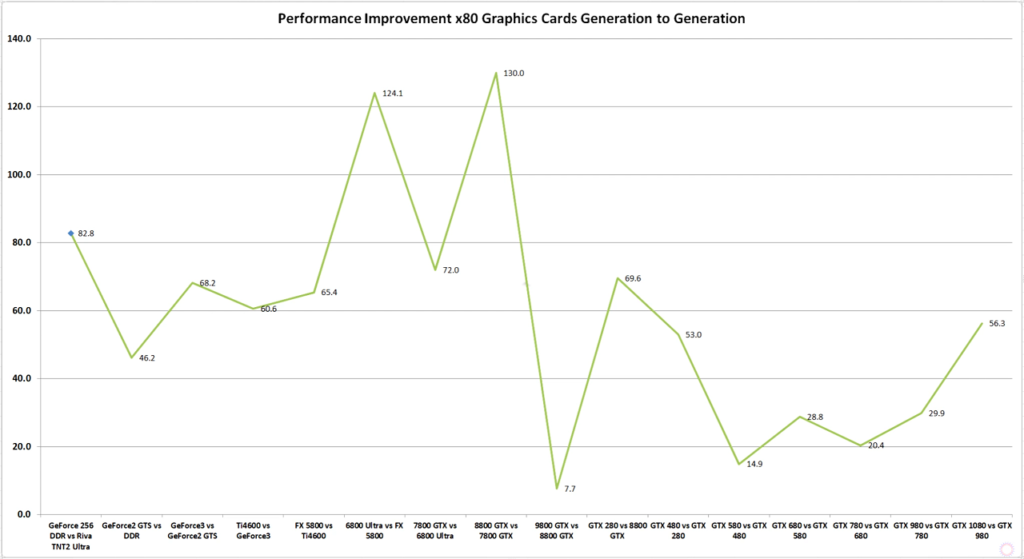Nvidia’s Performance Improvement per Gen has dropped from 70% to 30% since 2010

The performance improvement of Nvidia’s GPUs per generation has significantly reduced during the past few years. The gaming technology YouTube channel ‘AdoredTV’ recently released two videos discussing the history of GeForce graphics cards. The videos showcase a graph detailing the drop in Nvidia’s performance improvement per generation.
Prior to 2010, a new high-end graphics card from Team Green could be around 70% faster than its predecessor on average. Some cards including the GeForce 6800 Ultra and the GeForce 8800 GTX, even surpassed their previous generation counterparts by more than 100%.
Unfortunately, and as shown in the graph, there is a sharp decrease in performance gap after 2010. With the exception of GeForce GTX 1080, new high-end graphics cards can’t even deliver a 50% increase in performance, with the average generational jump of around 30%.
READ ALSO: AMD RX Vega 64 Pricing Issue: Could It once again hit $499 MSRP?
The possible reason behind this decrease in Nvidia’s performance improvement is the lack of competition in the graphics market. The good old days of ATI going head-to-head with GeForce cards are long gone, and AMD simply can’t keep up with Nvidia.
In fact, Nvidia doesn’t consider AMD’s latest RX Vega GPU a threat to its year old Pascal architecture. So it is in no rush to launch its next-gen 12nm Volta GPUs. Unless there is some real form of competition, the Santa Clara based chipmaker isn’t going to release a GPU that will outperform the previous-gen by more than 50%.
Meanwhile, Nvidia has been releasing multiple versions of its high-end graphics cards. A proper high-end GPU—GTX 1080 Ti for example—has a cut-down version of it that is GTX 1080, and a Titan version that is overpriced. The performance gradually increases per version, but the per generation jump isn’t noticeable.
If you’re interested in exploring the history of Nvidia’s GeForce GPUs, we recommend you watching AdoredTV’s videos below, which cover the topic in sufficient detail.
